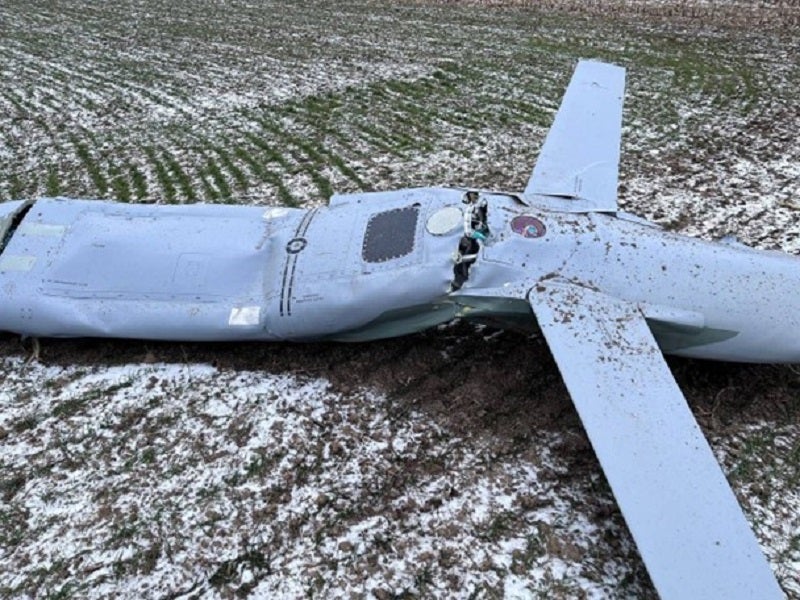
On 10 September 2024, the Permanent Subcommittee on Investigations – the oldest subcommittee in the US Senate Committee on Homeland Security and Government Affairs – called on four US companies to give evidence regarding the use of their products that were “disproportionately found” in Russian weapons.
According to their findings, more than 40% of nearly 2,500 components analysed in Russian weapons on the Ukrainian battlefield were made by these four domestic suppliers.

Discover B2B Marketing That Performs
Combine business intelligence and editorial excellence to reach engaged professionals across 36 leading media platforms.
Approximately 16% from Analog Devices, 15% from Texas Instruments, 5% from AMD, and 5% from Intel.
“These are the rough numbers,” noted the Chairman and Connecticut Senator, Richard Blumenthal, “they may be off by one or two [percent], but you get the idea, this phenomenon is undeniable.”
Avoiding sanctions
In response to Russia’s invasion of Ukraine in February 2022, the US and its allies imposed severe sanctions on the invader that have had severe costs on the Russian economy and industry.
These controls include sweeping financial sanctions and export controls that supposedly cut off the country’s access to vital technological inputs, weakened its industrial base and undercut their strategic ambitions.

US Tariffs are shifting - will you react or anticipate?
Don’t let policy changes catch you off guard. Stay proactive with real-time data and expert analysis.
By GlobalDataThe US government have even revised its export controls over the past two-and-a-half years to target issues such as Russia’s use of Iranian-made Shahed uncrewed aerial vehicles (UAVs).

However, since 2023, Russia’s wartime economy has stabilised with GDP growing by 3.6% (following a 1.2% contraction in 2022). Nevertheless, the Carnegie Endowment for International Peace warns that while this phenomenon may last a long time, “it is not eternal.”
While the West worries about Russia’s apparent stability, the reality that sanctions are not working as well as intended – with Amercian components being used to suppress Ukraine’s military resistance, as well as its civilian population and infrastructure – reduces the West’s position in the war even more.
“Despite two years of savage, criminal aggression, and two years of sanctions, American technology is still fuelling Russia’s murderous war against Ukraine,” observed Blumenthal in his opening remarks.
Call for audits
Members of the subcommittee pushed representatives of the four suppliers to commit, in the moment, to establishing new audit protocols when dealing with potential buyers. These additional compliance procedures would verify customers and their use of the products down the flow of commerce in accordance with stronger internal due diligence processes.
However, the subcommittee’s efforts to pin-point areas of vulnerability in global trade proved difficult. The vice president for global trade compliance and government affairs at Analog Devices, Michelle Stout, commented:
“Unfortunately, stopping diversion completely is impossible because of the ubiquity of chips in modern economies, the sprawling nature of chip markets and determined efforts by bad actors to circumvent regulations.”
Russian weapons: Kh-101 case study
Senator Blumenthal opened the hearing by recalling Russia’s strike against a children’s hospital in Kyiv on 8 July when a Kh-101 cruise missile was fired, “slaughtering dozens of medical staff and children, brutally injuring many. That missile was made by Russia, but the technology in it was American.”
When asked to explain the problems with tracking the use of their products, Tiffany Scurry, chief compliance officer, AMD, pointed out the enduring use of products in the global supply chain.

“There are a significant amount of components that were already legally in the stream of commerce before the invasion of Ukraine. When teams are able to trace components found on the Ukrainian battlefield they are often old – sometimes decades old.”
Although, after the attack on the hospital, investigators with Conflict Armament Research, a UK-based investigative organisation, found that the missile that struck Ukraine’s largest children’s hospital that day was manufactured in the Russian Federation “only weeks, and potentially just days, before the attack.”
Difficulty tracing supply chains
“Your products may be tiny, but your culpability is huge. In moral and perhaps legal terms, you bare deep responsibility,” asserted Blumenthal. “Our investigation is ongoing, and we’re going to determine whether your failure to stop these products from reaching Russia stems from wilful ignorance or perhaps something more.”
While the use of US and Western components in Russian systems is concerning, effectively monitoring the global supply chain market is a complex, and increasingly difficult, process.
A spokesperson for Intel provided a statement on the hearing and its findings, commenting: “We do not do business in Russia, and we operate in strict accordance with export laws, sanctions and regulations in the US and every jurisdiction in which we operate.
“We hold our suppliers, customers and distributors accountable to these same standards. Intel is diligently working to track and mitigate the potential diversion of our products, including actively coordinating with non-governmental organisations, the US and other governments to identify and stop this activity.”
Analog Devices, Texas Instruments and AMD were contacted but at the time of publishing none responded for comment.





